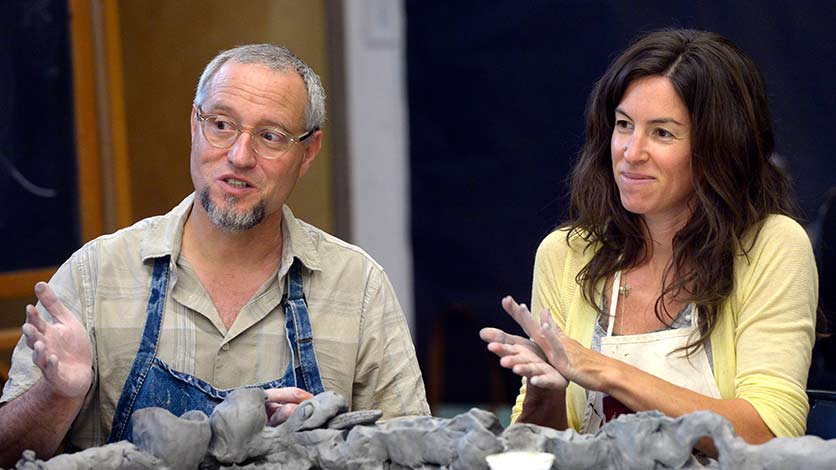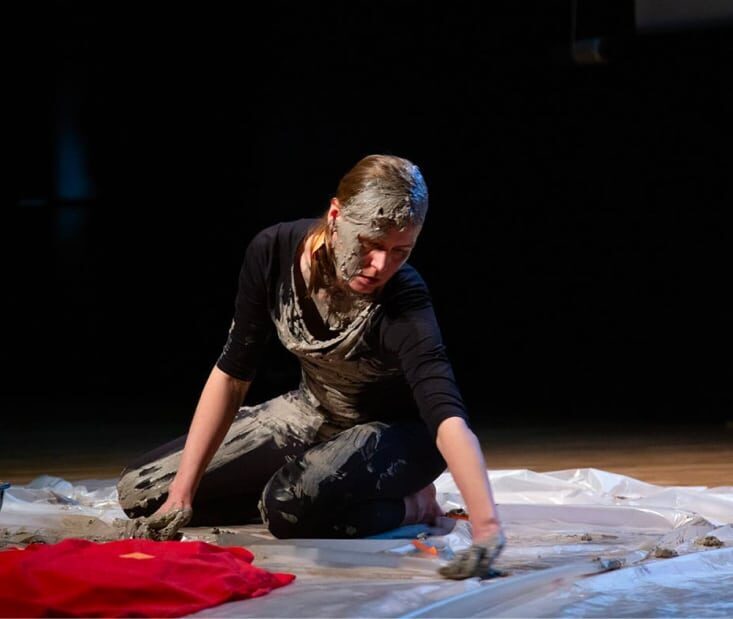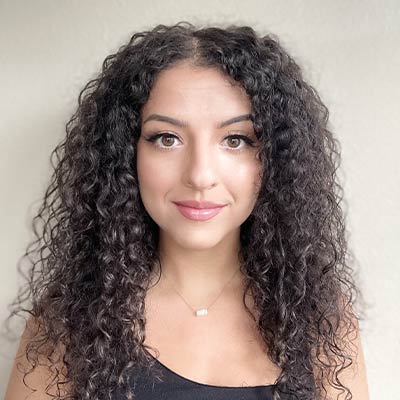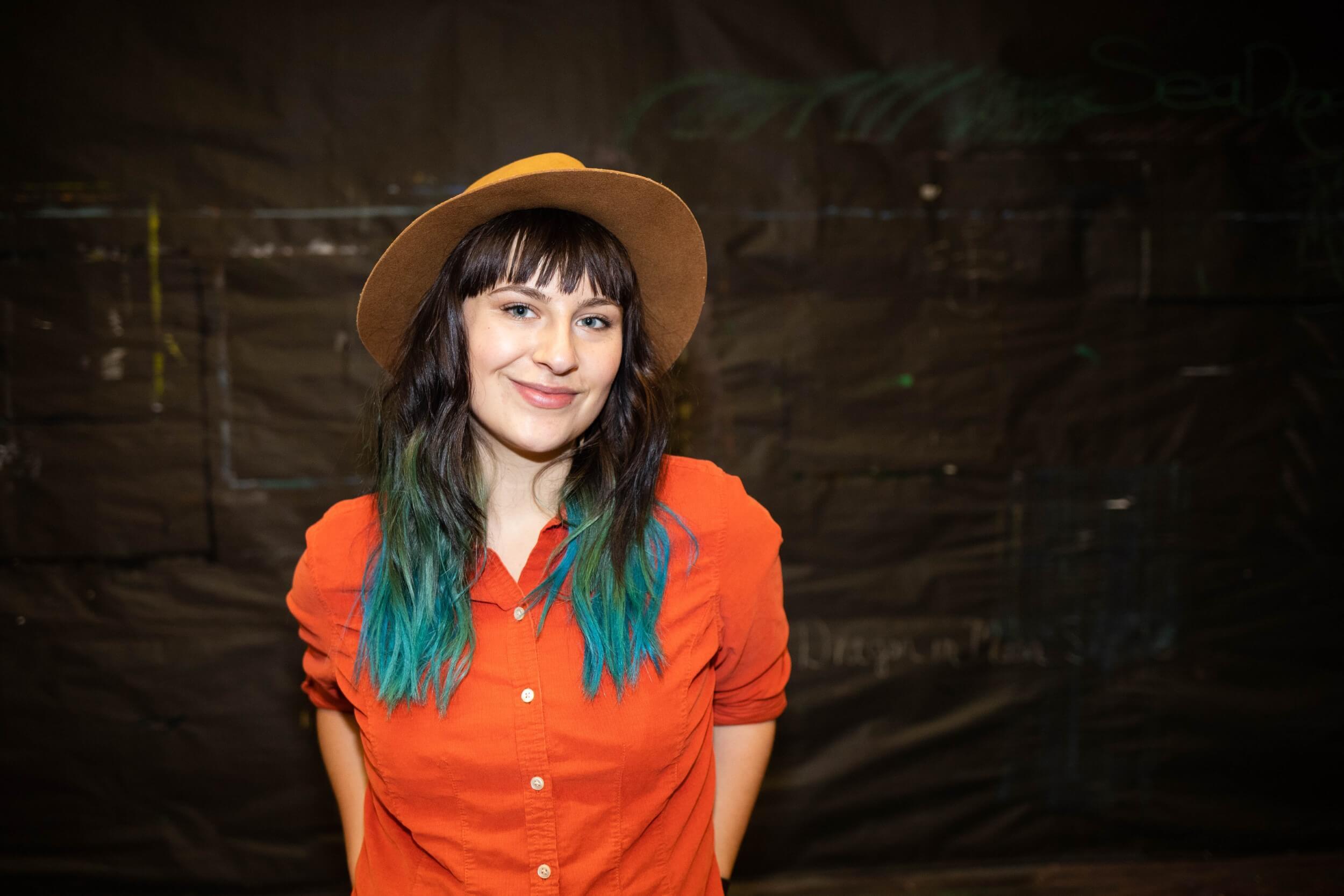BA in Art Therapy
Degree in Art Therapy
Program Overview
Naropa’s Bachelor of Arts in Art Therapy offers dynamic, community, hands-on learning, and a deeply introspective undergraduate curriculum that addresses heart, mind, and spirit.
Naropa’s degree in Art Therapy emphasizes mindfulness, both in the artistic process and in the approach to teaching the psychology behind effective art therapy.
Major in art therapy at the only Buddhist-inspired accredited university in the United States.
Contemplative Education
As the West’s founding school for contemplative education, Naropa integrates mind, body, and spirit in a holistic education aimed at transforming students, communities, and the world.
A Welcoming Community
Naropa offers both an undergraduate art therapy program and a graduate art therapy program, resulting in rich opportunities for mentorship and career guidance. A graduate mentor will guide you through your major in contemplative art therapy, serving as a sounding board, coach, and support.
Diversity in Insight
You will learn the practice and theory of art therapy at a school that puts mindfulness at the core of its curriculum. As you earn your undergraduate degree in contemplative art therapy, you will master studio techniques, explore Buddhist psychology, collaborate with motivated peers, and engage in fieldwork in the surrounding community.
Quick Facts
- On-campus Degree
- Mindfulness approach
- 51 credit hours
- 8 milestone courses In Studio Art, Art Therapy & Psychology
- Internship/Field Placement Experience
- Admissions open for 2024
Program Format
Naropa University’s undergraduate program is a four-year, fully accredited Bachelor of Arts program.
The Art Therapy major is an in-person 51-credit major during which students engage in an in-depth liberal arts education that integrates traditional and new approaches to the behavioral sciences, a strong introduction to art therapy theory, visual arts studio education, and community-based service learning opportunities. The innovative, carefully designed curriculum blends the intellectual and experiential traditions of East and West perspectives.
The curriculum encompasses both art therapy courses as well as significant credits in visual arts, world art history, and psychology, with a field placement in senior year.

Course Spotlight
Warrior Artist: Risk and Revelation in Studio Art
Degree
Requirements
A Bachelor of Arts degree (120 credits) consists of a Core Curriculum (24 credits) and at least one major, as well as minors and/or elective courses of the student’s choosing.
The Art Therapy Major has a total of 51 credit hours.
Art Therapy Major Requirements
Gateway
ATH230 Introduction to Art Therapy (3)
ART101 2-D Design: Art Techniques and Experimentation (3)
PSYB101 Introduction to Psychology (3)
3-D Design: Choose 3 credits
ART125 Introduction to Drawing (3)
ART200 The Contemplative Artist (3)
ART155 Figure Drawing (3)
ART325 Drawing II: Precision, Perception, and Form (3)
Drawing & Perception: Choose 3 Credits
- PSYB368 Psychology and Neuroscience of Emotion (3)
Painting: Choose 3 credits
ART245 Introduction to Painting: Realism (3)
ART215 Watercolor (3)
ART345 Painter’s Laboratory (3)
Art History: Choose 3 credits
ART301 Reconceptualizing Art History (3)
ART340 Contemporary Art History 1945 to Present (3)
Milestone
ATH-330 Art Therapy Theory & Applications(3)
ATH-430 Art Therapy: Studio Methods(3)
PSYB-314 Psychology of Mindfulness Meditation(3)
PSYB-325 Awakening Compassion: Working with Others(3)
PSYB-345 Developmental Psychology(3)
PSYB-371 Personality Theories(3)
PSYB-415 Maitri: Working With Emotions(3)
PSYB-420 Psychopathology(3)
Capstone
ART440 Warrior Artist: Risk and Revelation in Studio Art (3)
COR440 Capstone II (3)
Why Choose Naropa?
Introspective Curriculum
Naropa’s unique Bachelor of Arts in Art Therapy not only offers a vibrant arts community and experiential learning, it also delivers a deeply introspective undergraduate curriculum aimed at healing you, your future clients, and the world.
Community Engagement
With the undergraduate major in art therapy, students can choose between two culminating, senior-year experiences: the Field Placement or the Internship. Both opportunities provide career relevant learning in art therapy and integrate community-oriented skills such as grassroots organizing, grant writing, and policy research.
Graduate Studies
Naropa uniquely offers both an undergraduate art therapy program and a graduate art therapy program, resulting in rich opportunities for mentorship and career guidance. Further your studies after completing your bachelor's with our graduate program: Master of Arts in Clinical Mental Health Counseling, Concentration in Transpersonal Contemplative Art–Based Counseling.

How this Program Prepares You
Diverse Learning
The BA Degree in Art Therapy’s curriculum includes therapy courses, and significant credits in visual arts, world and history, and Buddhist psychology, collaborating with motivated peers, and engaging in fieldwork in the surrounding community all by following in the footsteps of art therapy pioneers.
Contemplative Education
The undergraduate major in art therapy instills mindfulness in art, relationships, and self-knowledge through courses like Buddhist Psychology and Contemplative Ceramics, preparing students for meaningful lives beyond school.
Guidance Opportunities
As one of the country’s few undergraduate art therapy programs paired with a graduate art therapy program, the Bachelor of Arts Degree in Art Therapy is uniquely positioned to provide mentorship opportunities. Naropa’s art therapy mentorship program prepares undergraduates to excel in the graduate program, to pursue master’s degrees in studio art, or to step into meaningful careers as art instructors, art coaches, or mental health workers.
What You'll Learn
Mindfulness
Learn to look inward as a first step in reaching out to help others.
Graduate School Readiness
Receive mindful mentorship that gives you a head start in graduate school.
Self-Awareness as an Artist
Cultivate confidence and dignity in your work as an artist and art therapist.
Foundation in Studio Art Therapy
Follow in the footsteps of art therapy pioneers.
Relational Skills
Refine communication skills through hands-on learning in diverse settings.
Career Opportunities with a Degree in Art Therapy
Upon completing Naropa’s degree in Art Therapy, students will be equipped to embark on diverse paths, such as pursuing master’s degrees in studio art, counseling, mental health, and art therapy.
Beyond academia, our graduates find themselves thriving in roles like art instructors, caseworkers, art coaches, mental health professionals, and beyond. The deep understanding of art therapy and visual literacy gained here extends its reach into many career possibilities.
- Art Therapist: use art for emotional expression and mental health support.
- Curator: organize and showcase artworks in museums or galleries.
- Art Director: ensure visual excellence in projects like advertising, film, or publications.
- Craft Artist: create unique handmade objects.
- Commercial and Industrial Designer: Ecreate innovative and practical product designs.
- Art/Drama/Music Teacher:educate and inspire students in the creative arts.
- Set and Exhibit Designer: create visually captivating environments for events or exhibitions.
- Fine Artist: create unique visual art pieces.
FAQs About the
Degree in Art Therapy
What can you do with a BA in Art Therapy?
What is the difference between the art therapy online degree and the on-campus degree?
The difference between the online and on-campus art therapy degrees may hinge on variations in course content, but both programs consist of a comprehensive 51-credit major.
Which art therapies will I learn at Naropa?
Do I need a Master’s degree to become an art therapist?
Yes, you need a master’s degree to become a licensed art therapist. You can get your master’s degree by continuing your education in Naropa’s Graduate School concentration in Transpersonal Contemplative Art–Based Counseling or another art therapy graduate program.
Learn More About the Program

Connect
with your counselor
Rachel Thompson
Assistant Director of Undergraduate Admissions
Prospective students with last names A-G
- 303-970-9831
- rachel.thompson@naropa.edu
- Schedule Appointment

Connect
with your counselor
Jenna Priest
Prospective students last names H-Z
Ready to Apply?
Admission Requirements
Naropa University’s unique approach values both academic excellence as well as the willingness to carry out introspective work.
Learn more about admission requirements and the application process for first-time and transfer students.
Undergraduate Students
- Application Requirements for Students with a 3.0 GPA or Higher
Applicants who boast a solid academic track record are welcome with minimal eligibility criteria. - Application Requirements for Students with Less than 3.0 GPA
If you recognize opportunities for improvement in your academic history but are eager to embrace the advantages of a Naropa education and play a dynamic role in our growing community, we invite you to submit your application. - Transfer Your College Credit
Bring over 60 or more transferable credits from your previous studies by presenting an official college transcript on top of your application.
Discover all application requirements for first-time and transfer students.
International Students
Naropa University values inclusion, diversity, and welcoming people from all cultures, regardless of where they come from. We are excited about the unique contributions you will bring to our friendly and diverse community. Learn more about international students’ applications and admission.
Costs and Financial Aid
Undergraduate Scholarship Opportunities







